We present two reviews of a memoir by our chair Jamie Summers…
See shirtyletters.com for how to get a copy
This is a well written coherent account of what it must be like to have been born with a silver spoon, suffered the slings and things of outrageous fortune, fallen heavily, recognised one’s own plight and, with belief, compiled the many memories to chronicle a ‘you couldn’t make it up’ succession of extraordinary events. The fact that it is done with clarity and honesty makes it compelling reading.
The memoir starts off with the horrific ordeal of slipping through the mental health net, even as a voluntary patient, and reads at this stage rather like a verbatim account outlining the events after they had happened. The logical, well argued in hindsight, rant against widespread chemical coshing by the seemingly non-sensical overstretched unconcerned authorities and the Catch-22 patients can find themselves so easily sucked into make for disturbing reading.
Yet with perseverance, and some broad ideas about faith, the author survives and goes back in time to explain the rarified world of inherited wealth into which he was born. He reflects on his, often idyllic, privileged upbringing telling of fascinating ancestral anecdotes up to the point of his arrival within the strange family dynamic. His evocations of the lifestyle alongside the rigours of an elite private education are most illuminating as is his devastation on the, at the time, unexplained suicide of his mother.
Persistent bolter behaviour by his philandering father can’t have helped much in the feelings department neither can a complete lack of emotional attachment between father and son; the matter seems to have been emotionally swept under the carpet of respectability as was so often the behaviour in days gone by.
Suffering in silence yet conforming to the norm he continued indulging in pastimes and pleasures; playing the game, at that stage of the performance, was considered the important thing in life and playing hard was admirable. To be seen to rebel and yet retain class conventionalism was indeed a tricky balancing act. Mostly manageable but when wrong, disastrously so.
Despite the increasing personal knockdowns; some hugely unfairly financial, some marital, many self-inflicted due to his regular cannabis consumption, the prose is never delusional and doesn’t sentimentalise the sheer unfairness of the experiences. The pain is described as are the fun times and it is these which seem to keep him going throughout the tribulations by which he is beset.
Sections of the memoir alternate between diary accounts of his travels, his musical tastes and his descents into the depths of mental trauma. This pendulum-like progress (?) keeps up a steady momentum eventually enabling him to overcome his illnesses by seeking solace within worship. The need to communicate his experiences and assist those less fortunate is now very much uppermost within his aim and set firmly in his sights. More descriptive travels (interesting destinations, now alas, mostly unrecognisable from his adventurous era) follow as does a gradual understanding of why he perceives he was put on the planet.
It is by meeting the charismatic Jean Vanier several times, followed by Holy Land wilderness travels, that the dilemma of life is further questioned. As the personal considerations get more profound and less diary-like, so the accommodation, lists of names and food price criticisms decrease and the internal journey of personal faith increases.
This is a book with both a beginning and a contemplative end that unfolds unexpectedly. It is told throughout with an honesty and conviction that is unflinching. One can only hope that, with further undoubtedly difficult forthcoming trials and tribulations, the author now has the wisdom to depend on his faith and resilience. Not only to retain his sanity but find true happiness and contentment. Given the therapeutic value of ‘telling it like it is’. I have a feeling there are more stories to come.
‘A pal of fifty years’
A number of chapters of Jamie Summers’ autobiography were particularly touching. For me, his pained admissions on and into Springfield Hospital in South London, where I have worked, stand out, as well as his time at Eton and the loss of his mother to suicide at such a young age.
His story reminds us what many of us will have felt from time to time about how a wealth of physical resources does not protect us from a poverty of mental and emotional ones. Jamie’s story strikes me so, as a boy and a man he was handed blessings in one hand and lemons in the other, and left to find his own right way through a maze of mind and mental healthcare that was, too often, not caring enough.
Lemons indeed. This book is their process. Jamie adds the sugar of his writing style and charm to the acid singe of his suffering to make something special: homemade lemonade.
Jonathan Iliff (first published in the newsletter of the Old Etonian Mental Health Society)

